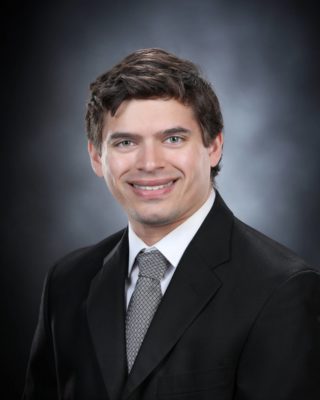Spotlight: Benjamin Cohen PhD’18

“These activities were really important for me to see people with PhDs who chose to leave the academic world, and I also developed key skills in talking and thinking about science from perspectives outside of just research results.”
Were you interested in academia when you started graduate school? If so, what made you interested in exploring other options? If no, what were your career goals?
My original plan when I began grad school was to continue on a path in academia, but this changed during my second year leading up to my A exam. While I enjoyed conducting research, I wanted an opportunity to work on projects with larger groups of people and I wanted an avenue where the benefits of my work could reach the public faster. It was just after I took my A and was thinking about these things that I first met with Susi to talk about the BEST Program.
What BEST activities or organizations helped you most in forming your career interests and building additional skills? Did your career goals change through any of these?
My time spent in the BEST program focused on the science communication and policy tracks. I met regularly with Cornell ASAP, taking a trip with them to meet policymakers in Albany, NY. I also participated in ComSciCon, a science communication program that BEST helped sponsor on campus, and I later joined the organizing committee to put on ComSciCon a year later. Although I did not end up pursuing a career in either Science policy or communication, these activities were really important for me to see people with PhDs who chose to leave the academic world, and I also developed key skills in talking and thinking about science from perspectives outside of just research results. These activities and groups were also important for me to work on leadership and organizing skills that have been invaluable for me since I’ve left school.
What are you up to now that you’ve graduated?
I now work as a research and development engineer for a biotechnology start-up called 3DBio Therapeutics. We use bioprinting and other advanced manufacturing techniques to develop tissue engineering and regenerative medicine solutions to existing clinical challenges, such as treating congenital ear defects and degenerative disc diseases.
Lastly, what do you like to do in your free time?
These days when I’m not working, I’m often traveling or learning new cooking skills. I went to Japan this past spring and will be going to Israel this month.
Benjamin graduated from Cornell with a PhD in Biomedical Engineering in December 2018. While here, he worked on tissue engineering human auricular (ear) cartilage to match the human ear anatomy.
by Cassandra Wattenburger
This spotlight is from the time period of the NIH grant (Sept. 2013- Jun. 2019) to the Cornell BEST Program. As a result of the success of the grant funded period, Cornell University transformed BEST into a university-wide initiative “Careers Beyond Academia/BEST” to encompass all disciplines, and is now housed in the Graduate School.


